Topping VS Fimming - Which Is Best For Autoflower?
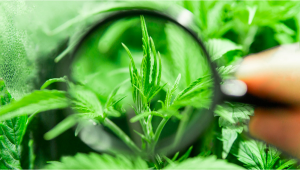
- 1. What is the difference?
- 2. How does topping work with autos?
- 2. a. Benefits of topping
- 3. How does fimming work with autos?
- 3. a. Benefits of topping
- 4. The best autoflowering strains for topping or fimming
- 5. Lst techniques suited to autoflowering cultivation
- 6. In conclusion
When it comes to these two plant training techniques, the actual difference between the two is very small. Understanding the purpose of topping and fimming autoflowers can have many benefits associated, from a more compact growth structure, reduced height, and bigger buds. In this article we compare topping and fimming, explaining the advantages of each, when to apply and what to consider.
1. What Is The Difference?
Fimming was created by accident and the word FIM is an abbreviation for "Flip I Missed!”, in reference to a failed attempt at topping the plant cleanly. Doing this accidental technique and purposely leaving 25% of the top shoot remaining, growers noticed that their Cannabis plants would respond by growing with a much more stocky growth structure as well as with limited vertical growth. There will be a time frame of around one week where the plants recover and begin to grow back to normal focusing on vertical growth.
Topping, on the other hand, is when the main crown shoot of a Cannabis is cleanly removed. What is left behind will be known as axillary shoots. In response to the loss of the main crown shoot, the plant will encourage the two shoots to grow, allowing the plants to develop two main central colas instead of one. Plants will respond instantly and the distribution of growth hormone auxin is reduced.
2. How Does Topping Work With Autos?
When we are working with autoflowering Cannabis plants, there is a window of 3-4 weeks in which all types of plant training should be performed. As described above, topping will disrupt the growth hormone responsible for the vertical growth and main cola, which may or may not be advantageous to specific cultivars.
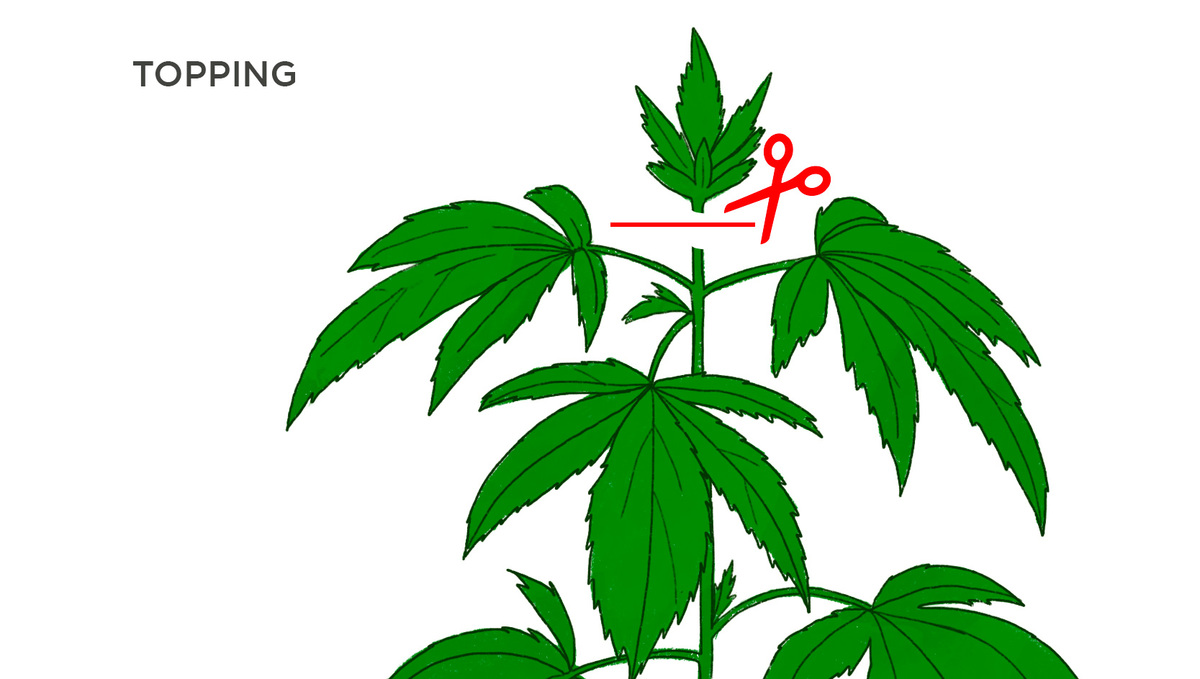
The main benefit of topping autos is to help control the final plant height of a sativa dominant hybrid, producing a more uniform and lateral dominant canopy. We advise only topping autoflowering strains that have a tendency to grow quickly and finish as tall as 150cm, like Orange Sherbet Auto.
The way to perform topping is to allow the plants to grow tall enough so you can easily remove the crown shoot from the top internode, then cleanly remove with a pair of clean and sterile scissors.
Maybe a better question is - should we be topping or fimming autoflowering cannabis varieties at all?
HST, or High-Stress Training techniques, are usually a big no-no when it comes to working with autoflowering cannabis strains. And topping and filming are the absolute definitions of HST. As mentioned above, any form of stress will cause a pause in the growth of a cannabis plant. This is fine for regular photoperiod plants because, with indoor cultivation anyway, we as the growers can control the length of the vegetative growth period. That is not the case when it comes to autos. They have an inbuilt timer that only allows for about 2 to 4 weeks depending on the strain. This is why we only recommend topping or fimming autos that grow huge, and have slightly longer cultivation periods, as it allows for the plant to bounce back from the stress.
Benefits Of Topping
• Outdoor growers will find topping useful at dramatically reducing the final height of the plant. Some cultivars that can grow as tall as 150 cm, will benefit the most allowing for a more discreetly grown crop on a terrace, balcony, greenhouse, or back garden.
• The growth structure of the plants will change from vertically dominant, to a more bushy Christmas tree appearance. Side branches will benefit and be given a chance to grow alongside the main crown shoots, causing a much more even and consistently producing top canopy.
• When working with a SCROG set up, topping autos can be very advantageous. Be sure to check the cultivar you are growing is well suited for a Screen of Green that uses a net for the canopy to be grown through.
• Topping Cannabis only needs to be performed once for the desired effect to be achieved. This should be done once the plants have grown past the 2nd or 3rd internode.
3. How Does Fimming Work With Autos?
Applying fimming at the right time will allow you to reduce the vertical growth, and at the same time encourage energy transfer to the lowest-growth sites. The result is the foliage and stem size will grow much quicker and by the time the crown shoot has recovered, the rest of the plant has caught up with the upper part. The advantages are all of the buds from top to bottom with finish with an almost identical size and structure, eliminating the concern over undeveloped, lower popcorn buds.
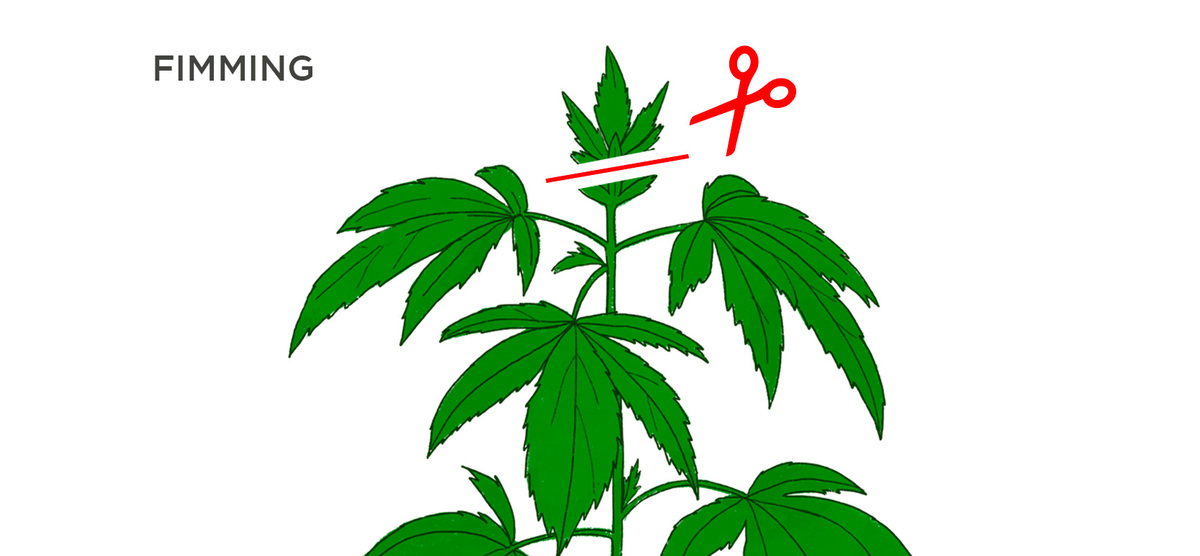
It is very important that fimming is only applied prior to plants producing flowers and should really be done with cultivars that can afford the reduction in height. Be Careful if applying fimming to short and stocky indica dominant cultivars as this can cause plant height to stay very low unless that is the goal.
Benefits Of Topping
• Apical dominance is temporarily stopped, and growth energy evenly distributed to the rest of the plant pathways. Unlike topping, vertical growth will resume back to normal after 5-7 days, giving you some control of the plant's final height and overall appearance.
• Fimming is easy to perform and can really enhance the growth structure of an autoflowering Cannabis plant. Make sure that you use a clean and sharp pair of scissors and be extra careful not to remove more than 75% of the crown shoot.
• Lower buds will have the opportunity to grow at the same rate and size to the higher parts of the plant. When using L.S.T. and carefully fimming, the end results can be spectacular resulting in a very large-sized plant with consistent bud development throughout.
• A great way to reduce the final height and still grow stocky and dense plants. It is best to use more sativa dominant hybrids as short indicas may not react as well.
4. The Best Autoflowering Strains for Topping or Fimming
So, as we have already pointed out, auto’s are not always suitable for HST methods like topping or fimming. Many autoflowering strains simply do not have a vegetative growth period that is long enough to handle the stress involved with such techniques, and will ultimately suffer. The final yield will be affected in terms of size and quality. Hold on though! There are some auto-flowering strains that can not only handle topping and fimming but really flourish under such training techniques. Certain larger cultivars have shown that can handle the stress, although we do regard topping and fimming of auto strains to be reserved for cultivators who have a fair bit of growing experience under their belt.
Once you have a couple of harvests from autoflowering strain done and dusted, and have tried some less invasive forms of plant training like the tie-down method or SCROG, you will most likely want to start some more intense experimentation. This is a great time to get your hands on some strains suited to HST and give topping or fimming a crack. It's highly important to only try these techniques on young, healthy plants that are showing zero signs of distress. Any plants that have been under or overwatered or fed, or are battling any sort of infestation or nutrient issue will not be strong enough to bounce back from the stress that topping and fimming place on the plant. Remember to start early when using HST techniques on autos. With photoperiod plants, we usually recommend topping after the 5th node has developed. With autoflowering strains, we prefer to top or fim after the 3rd node is present, as there is just not enough time to wait any longer. So, without further ado, let’s quickly run through the best autoflowering cannabis strains for HST techniques like topping or fimming!
Orange Sherbet Auto
Orange Sherbet Auto is our number one strain to try HST techniques with. This Sativa-dominant giant grows in excess of 150cm, has a slightly longer vegetative period, and is capable of producing up to 650gr/m2 when grown to perfection (topping or fimming can go a long way in helping her reach her full yield potential!).
Mimosa Cake Auto
While not usually reaching the lofty heights of Orange Sherbert Auto, Mimosa Cake Auto is no slouch and regularly tops out at over 1.3m making this strain our second-best option for topping or fimming.
Wedding Cheesecake Auto
Taking out the bronze medal for autos that can handle some HST is Wedding Cheesecake Auto. This is one of our top-selling strains for commercial growers, with the flower production being off the scale with extremely resinous and sticky end results.
Ok, we've gone over topping and dimming in pretty close detail, but we've also mentioned that both of these high-stress training techniques can actually have the opposite effect of what we are looking for - lower yield sizes thanks to the amount of stress they both put the plant under. So, what plant training techniques should you use instead?
Unless you are super experienced with growing autos and have a bunch of runs under your belt with a particular strain then - for the most part - we do not recommend using any HST techniques whatsoever. Instead, let's take a look at the best low-stress training methods out there that will also offer increased yield sizes, while also ensuring the plants don't get so stressed that their growth is stunted.
5. LST techniques suited to autoflowering cultivation
The Tie-Down Method
The tie-down method is the most simple of all the LST techniques, and involves tying down the branches of your auto plant so that the canopy can be evened out. This helps the light to penetrate all parts of the plant more evenly and also increases air circulation around each leaf and flowering site.
The tie-down method also essentially tricks the plant into thinking that the main cola has been damaged or even snapped off, which allows for a much more even distribution of energy, growth hormones, and nutrients into the other branches, resulting in larger and more uniform yields.
The Screen Of Green Method (ScrOG)
The ScrOG method is a slightly more advanced technique but one which can offer great rewards when used correctly. It involves growing your plant under a screen or net of some sort - usually nylon or metal - with the intention of creating a much more even canopy.
By controlling the light, air circulation, and nutrient uptake at each site, you can create a much healthier plant with larger yields than would otherwise be possible using other techniques. The ScrOG method is super effective for both indoor or outdoor grows, but comes with the added bonus of adding a level of discretion when trying to keep your crop hidden from view. ScrOG training has become increasingly popular in the last decade, especially with autoflower cultivation. It is one of the most popular LST techniques to use with autos because it offers great control over yield size and resin production.
The Sea Of Green Method (SOG)
The Sea Of Green method (SOG) is a similar technique to ScrOG, but instead of using screens or nets, it involves planting multiple small-sized plants in one grow area and controlling the canopy through spacing and light exposure. This makes autos pretty much the perfect type of cannabis to use for SOG, due to the fact that auto-flowering strain flower and finish much faster when compared to photoperiod strains. How about other ways to increase yields?
There are lots of other ways to increase yields when growing autoflowers, and not all of them need to involve plant training. For example, making sure your plants are getting the right amount of light, water and food can really help with yield size. Also, using LED lighting instead of HPS bulbs can drastically increase yields, as can increasing the size of your grow area if you have the space.
6. In Conclusion
Both of these easy-to-perform techniques have their own pros and cons. We recommend researching which autoflowering strains are best for plant training, as stated by the seed banks. Finding the right amount of plant training can be a balancing act that takes time based on your experience, growing space, and cultivar.








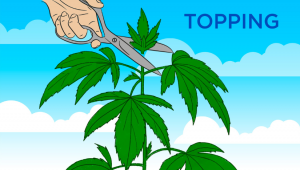
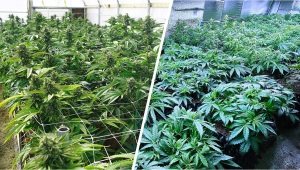

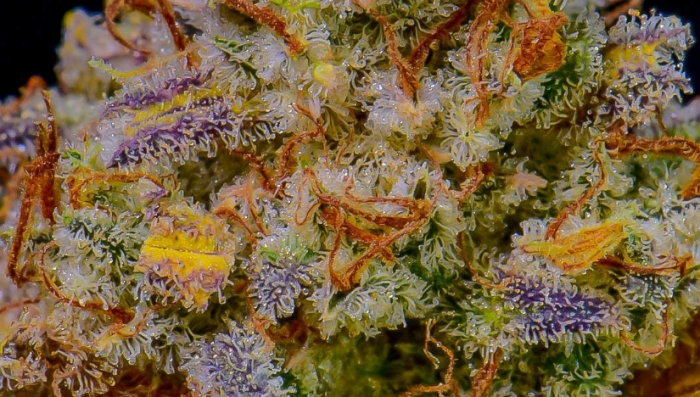

Comments